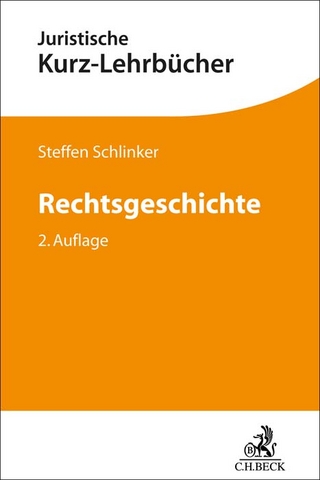
Doubt in Islamic Law
Cambridge University Press (Verlag)
978-1-107-44051-7 (ISBN)
This book considers an important and largely neglected area of Islamic law by exploring how medieval Muslim jurists resolved criminal cases that could not be proven beyond a doubt, calling into question a controversial popular notion about Islamic law today, which is that Islamic law is a divine legal tradition that has little room for discretion or doubt, particularly in Islamic criminal law. Despite its contemporary popularity, that notion turns out to have been far outside the mainstream of Islamic law for most of its history. Instead of rejecting doubt, medieval Muslim scholars largely embraced it. In fact, they used doubt to enlarge their own power and to construct Islamic criminal law itself. Through examination of legal, historical, and theological sources, and a range of illustrative case studies, this book shows that Muslim jurists developed a highly sophisticated and regulated system for dealing with Islam's unique concept of doubt, which evolved from the seventh to the sixteenth century.
Intisar A. Rabb is Professor of Law at Harvard Law School and the director of its Islamic Legal Studies Program. She also holds an appointment as a Professor of History and as Susan S. and Kenneth L. Wallach Professor at the Radcliffe Institute for Advanced Study at Harvard University, Massachusetts.
Introduction; Part I. Institutional Structures and Doubt, Seventh–Sixteenth Century CE: 1. The God of severity and lenity; 2. The rise of doubt; Part II. Morality and Social Context, Eighth–Eleventh Century CE: 3. Hierarchy and hudud laws, eighth–ninth century CE; 4. Doubt as moral discomfort, tenth–eleventh century CE; Part III. The Jurisprudence of Doubt, Eighth–Sixteenth Century CE: 5. Doubt as an element of Islamic criminal law, eighth–eleventh century CE; 6. Substantive, procedural, and interpretive doubt, eleventh–sixteenth century CE; 7. Strict textualism as a limitation on doubt: Sunni opponents, eighth–eleventh century CE; 8. Dueling theories of delegation and interpretation: Shi'i doubt, tenth–sixteenth century CE; Conclusion: doubt in comparative and contemporary context.
| Erscheint lt. Verlag | 2.11.2017 |
|---|---|
| Reihe/Serie | Cambridge Studies in Islamic Civilization |
| Zusatzinfo | 2 Tables, unspecified; 2 Plates, unspecified |
| Verlagsort | Cambridge |
| Sprache | englisch |
| Maße | 153 x 230 mm |
| Gewicht | 600 g |
| Themenwelt | Geisteswissenschaften ► Geschichte ► Regional- / Ländergeschichte |
| Geschichte ► Teilgebiete der Geschichte ► Militärgeschichte | |
| Geisteswissenschaften ► Religion / Theologie ► Islam | |
| Recht / Steuern ► Allgemeines / Lexika | |
| Recht / Steuern ► EU / Internationales Recht | |
| Recht / Steuern ► Rechtsgeschichte | |
| Recht / Steuern ► Strafrecht | |
| ISBN-10 | 1-107-44051-3 / 1107440513 |
| ISBN-13 | 978-1-107-44051-7 / 9781107440517 |
| Zustand | Neuware |
| Informationen gemäß Produktsicherheitsverordnung (GPSR) | |
| Haben Sie eine Frage zum Produkt? |
aus dem Bereich


